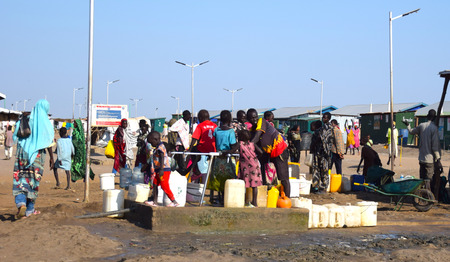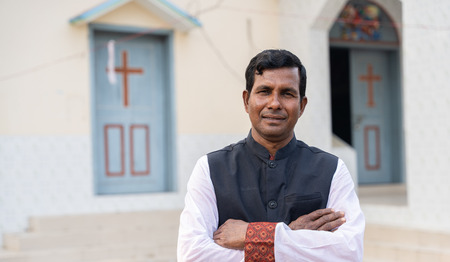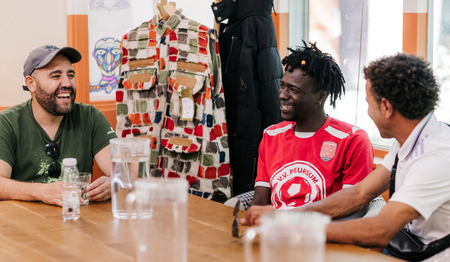Learn more about Shared Futures in Cameroon
Extreme poverty is a breeding ground for radicalisation, sometimes over religious lines. In Cameroon Christians, Muslims, both refugees and locals, are working together to improve their economic situation. They learn to appreciate and strengthen each other to overcome their difficulties.
Extreme poverty and Boko-Haram-refugees in Northern Cameroon
Northern Cameroon is sandwiched between Chad and Nigeria, in a region where people are faced with many challenges, such as terrorism (Boko Haram), climate change, and the influx of large groups of refugees. Resources are scarce, poverty rates are high, and there is limited access to basic needs like water, food and fuel. There is less chance of good housing, good education and economic development. Still thousands of refugees, fleeing the cruelty of Boko Haram, find shelter in these poor living conditions. Due to scarcity of basic needs, tensions arise between refugees and host communities.
Challenges and risks for young people
 A lot of young people in Cameroon are faced with unemployment, poverty, and a lack of access to basic social security services. Among young Cameroonians (ages 18-35), 39.3 percent are unemployed (source). When poverty and youth unemployment rates are high, crime and insecurity are more likely to rise. Therefore, young people may be drawn to the offers of organisations like Boko Haram.
A lot of young people in Cameroon are faced with unemployment, poverty, and a lack of access to basic social security services. Among young Cameroonians (ages 18-35), 39.3 percent are unemployed (source). When poverty and youth unemployment rates are high, crime and insecurity are more likely to rise. Therefore, young people may be drawn to the offers of organisations like Boko Haram.
Shared Futures in Cameroon
The Shared Futures programme is initiated by Kerk in Actie and has been implemented since 2023 by an NGO in the Far North of Cameroon. It aims to economically uplift 200 youth of different faith per year, enhance social cohesion and prevent religious extremism. The programme works along three pathways: a) communities, b) duty bearers and c) advocacy to share its insights. Each pathway has a specific set of activities which contributes towards attaining an impact to have a just and resilient society, upholding freedom of belief and fostering interfaith cohesion through socio-economic cooperation.
Training youth at risk
 Every year 200 young people in two different places are trained to improve their economic situation. The groups are always mixed: Christians and Muslims, both refugees and native residents. They can choose between trainings such as sewing clothes, breeding goats, butchery, making food and growing vegetables. After a practical training, participants receive a seed capital and basic products to start their own business. The trainees keep meeting each other regularly to survey their progress and needs. Additionally, they receive microcredit opportunities. The crops of vegetables are well-maintained thanks to the strong adoption of the newly introduced techniques. The sewing workshop is trying to set-up collective entrepreneurship. Some former participants are now mentoring new ones. Several former participants were able to integrate professionally within organizations operating in the field, as well as in livestock microprojects established by the Cameroonian government in their communities. This also demonstrates the government’s support in the implementation of the Shared Futures program. Some beneficiaries are now working as community facilitators, while others serve as site supervisors.
Every year 200 young people in two different places are trained to improve their economic situation. The groups are always mixed: Christians and Muslims, both refugees and native residents. They can choose between trainings such as sewing clothes, breeding goats, butchery, making food and growing vegetables. After a practical training, participants receive a seed capital and basic products to start their own business. The trainees keep meeting each other regularly to survey their progress and needs. Additionally, they receive microcredit opportunities. The crops of vegetables are well-maintained thanks to the strong adoption of the newly introduced techniques. The sewing workshop is trying to set-up collective entrepreneurship. Some former participants are now mentoring new ones. Several former participants were able to integrate professionally within organizations operating in the field, as well as in livestock microprojects established by the Cameroonian government in their communities. This also demonstrates the government’s support in the implementation of the Shared Futures program. Some beneficiaries are now working as community facilitators, while others serve as site supervisors.
Increase of social cohesion and interfaith relations
 There are awareness raising sessions, leadership trainings and peace groups in every region, where Shared Futures is or was active in the Far North region. The positive changes in economic resilience and interfaith cohesion strengthen one another. As a result, our partner and project participants have reported an increase of social cohesion and interfaith relations.
There are awareness raising sessions, leadership trainings and peace groups in every region, where Shared Futures is or was active in the Far North region. The positive changes in economic resilience and interfaith cohesion strengthen one another. As a result, our partner and project participants have reported an increase of social cohesion and interfaith relations.
Support of local duty bearers
 To ensure transparency and community ownership, participants are selected in close collaboration with local communities with Christians, Muslims and traditional leaders. The engagement of local authorities shows that the project is relevant for the wider community. Our partner organises meetings between community leaders, political leaders, and NGO representatives, to establish common ideas and collaboration for common interest. Participants gain access to local governments, who can support them. Some participants also received identity cards to give them the possibility to participate in socio-economic activities. And children who have no birth certificates are able to register for primary school final examinations.
To ensure transparency and community ownership, participants are selected in close collaboration with local communities with Christians, Muslims and traditional leaders. The engagement of local authorities shows that the project is relevant for the wider community. Our partner organises meetings between community leaders, political leaders, and NGO representatives, to establish common ideas and collaboration for common interest. Participants gain access to local governments, who can support them. Some participants also received identity cards to give them the possibility to participate in socio-economic activities. And children who have no birth certificates are able to register for primary school final examinations.
Lobby and advocacy efforts 
The Shared Futures programme in Cameroon is carried out in collaboration with the University of Maroua. As a result, the work has been presented in academic journals and at international conferences, helping to disseminate knowledge and reach a wider audience. Cameroonian leaders use the successes of the Shared Futures communities they visited as inspirational examples of social cohesion for others.
Changes systematically measured
Our partner in Cameroon uses the Most Significant Change methodology to systematically measure personal, relational and socio-economic change, which are mostly connected. Participants and leaders share stories of improved livelihoods, reduced feelings of abandonment among youth, and restored trust among different social and religious groups. Sharing of results among stakeholders encourages the continuation of the programme, which calls for an expansion to other areas, because it is adding to the safety, security and peaceful co-existence in North-Cameroon.
The Shared Futures programme is developed by Kerk in Actie and active in Pakistan, Kenya, Egypt, Cameroon, Ghana and the Netherlands and will start in 2026 in Bangladesh.




